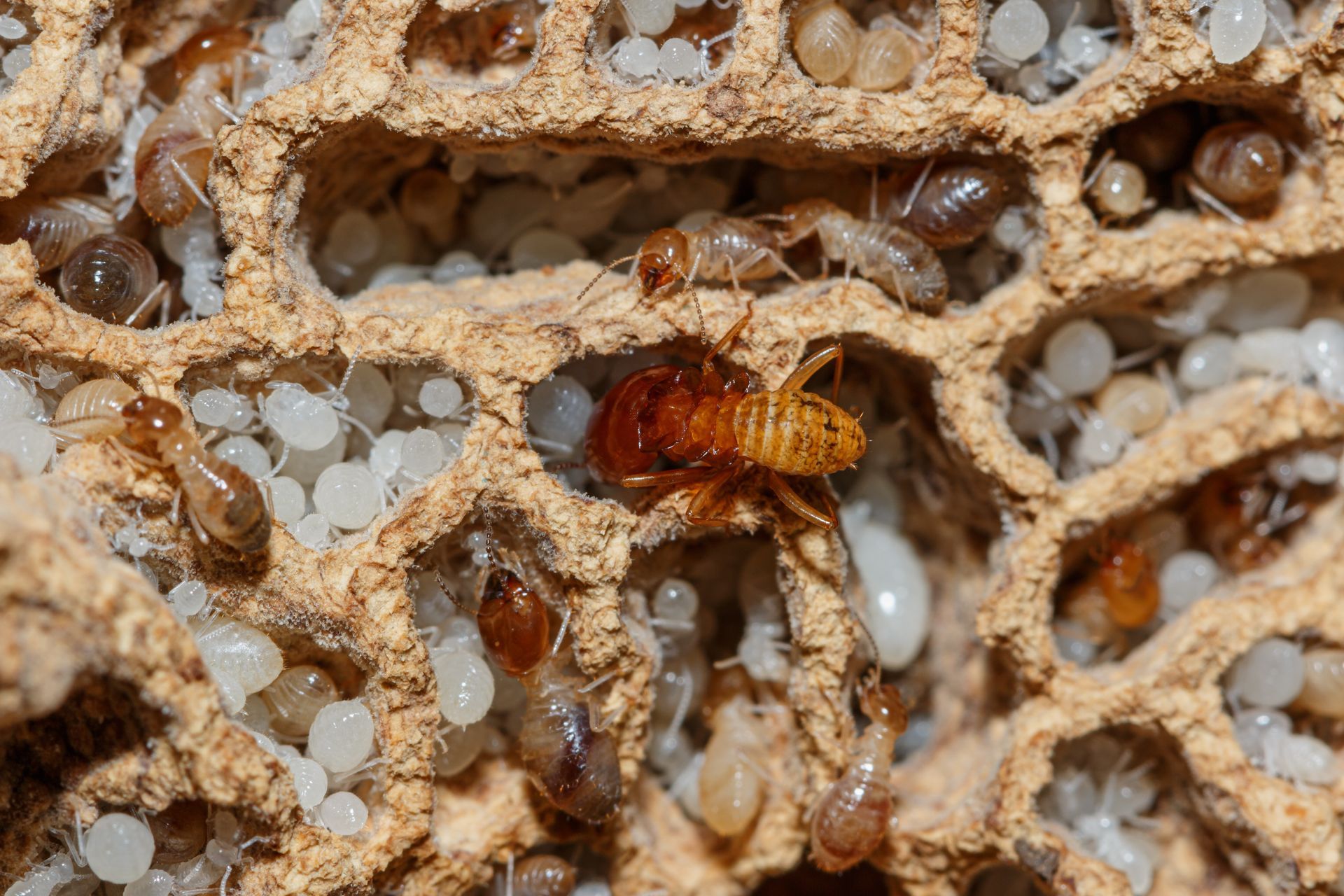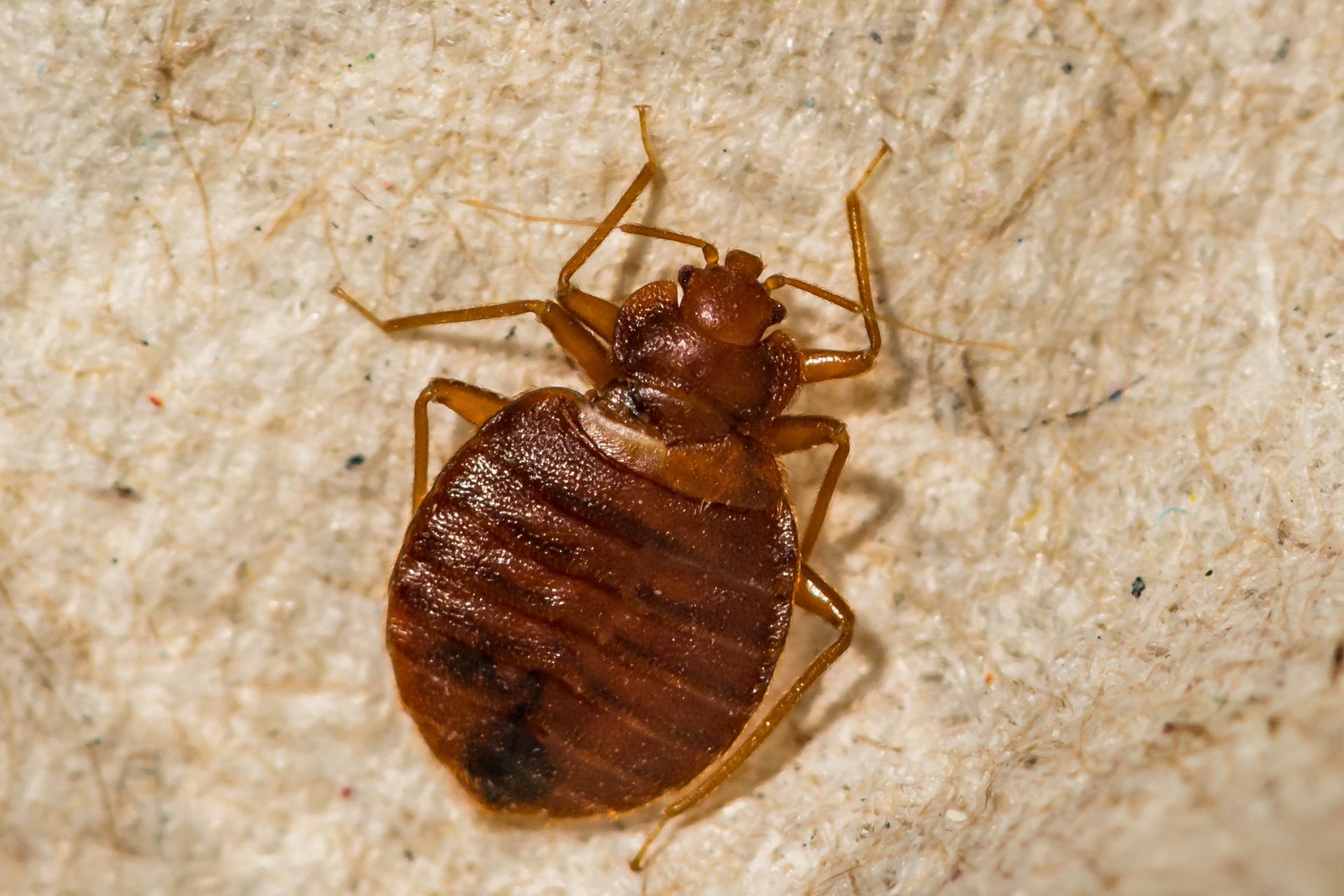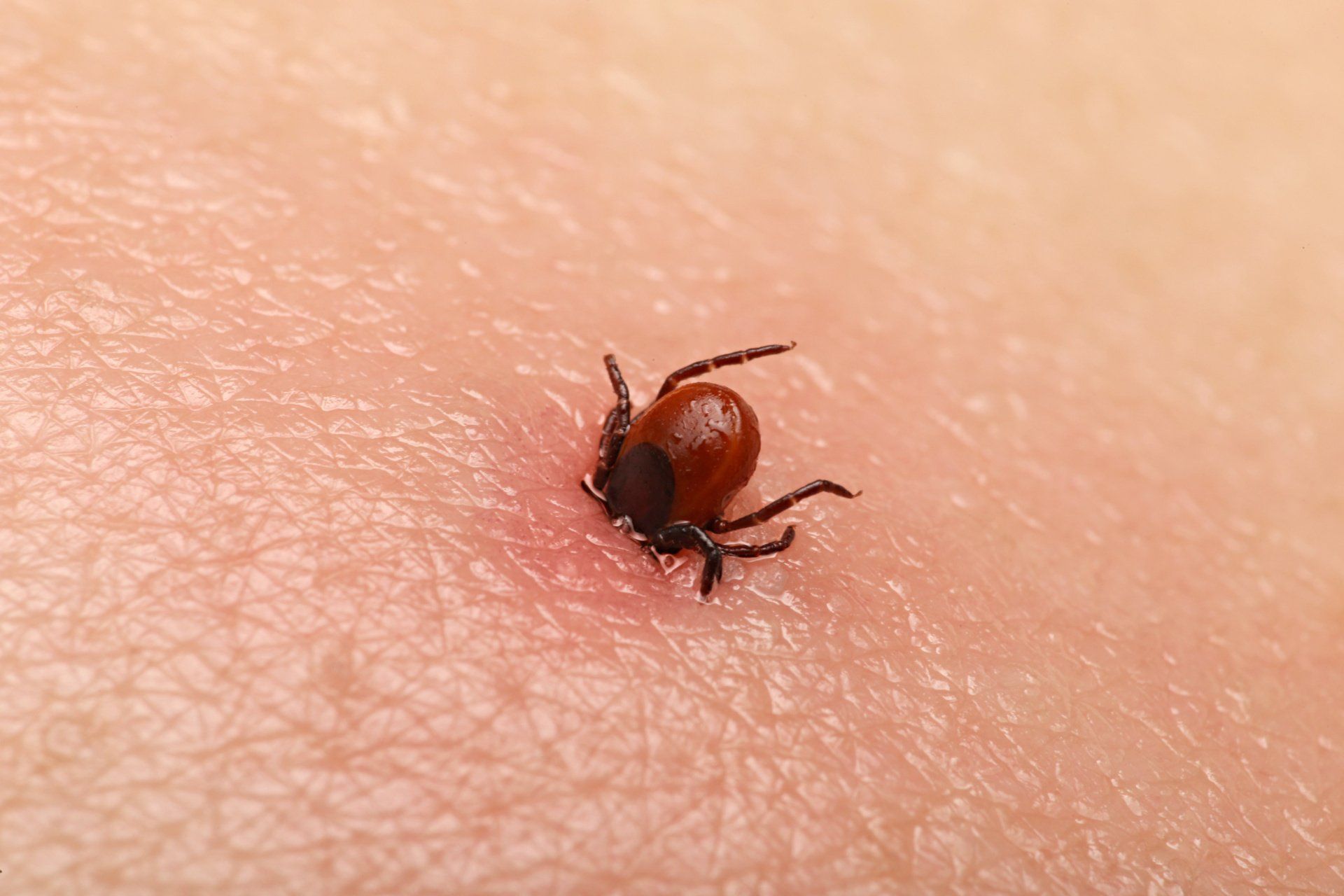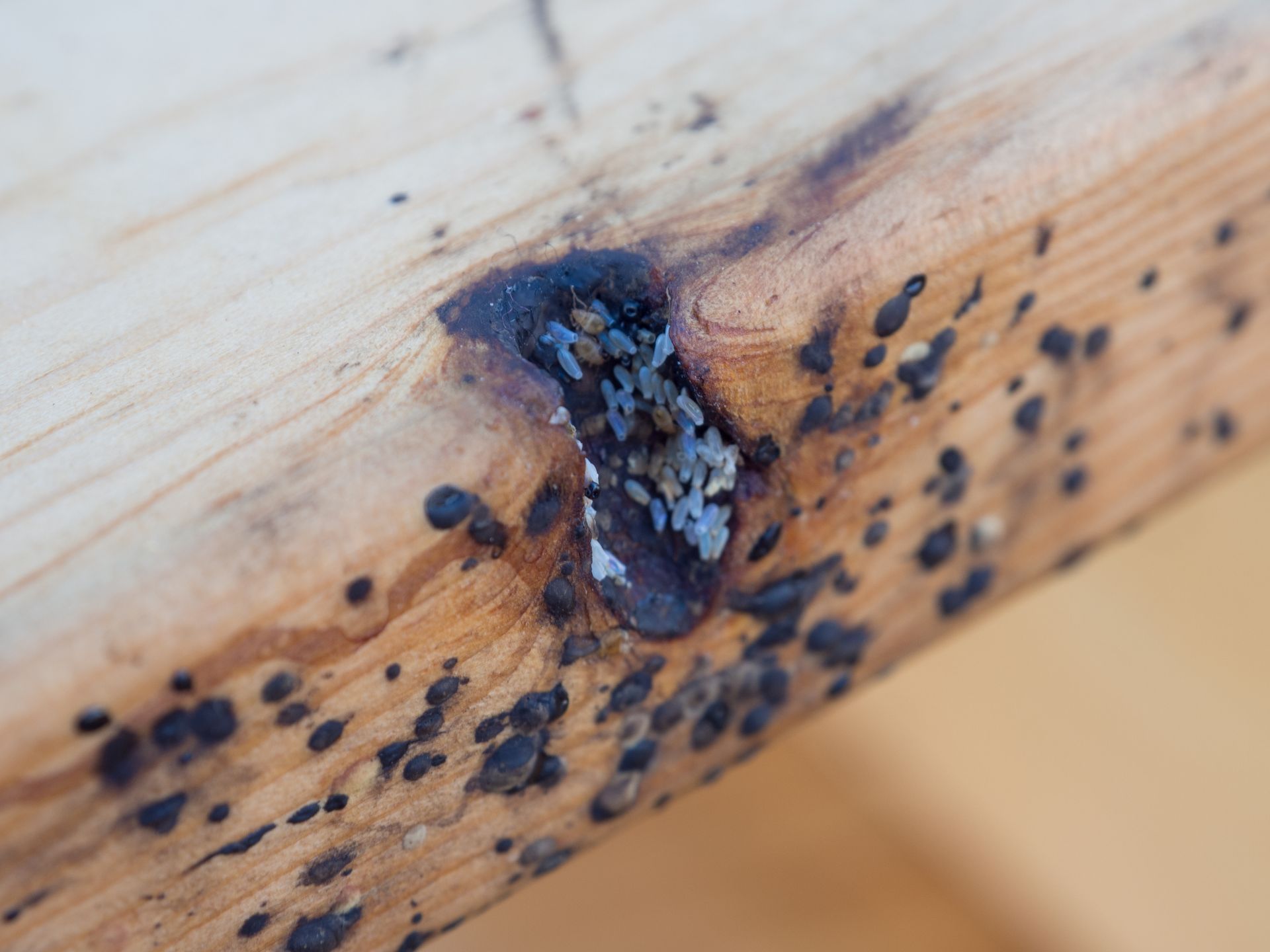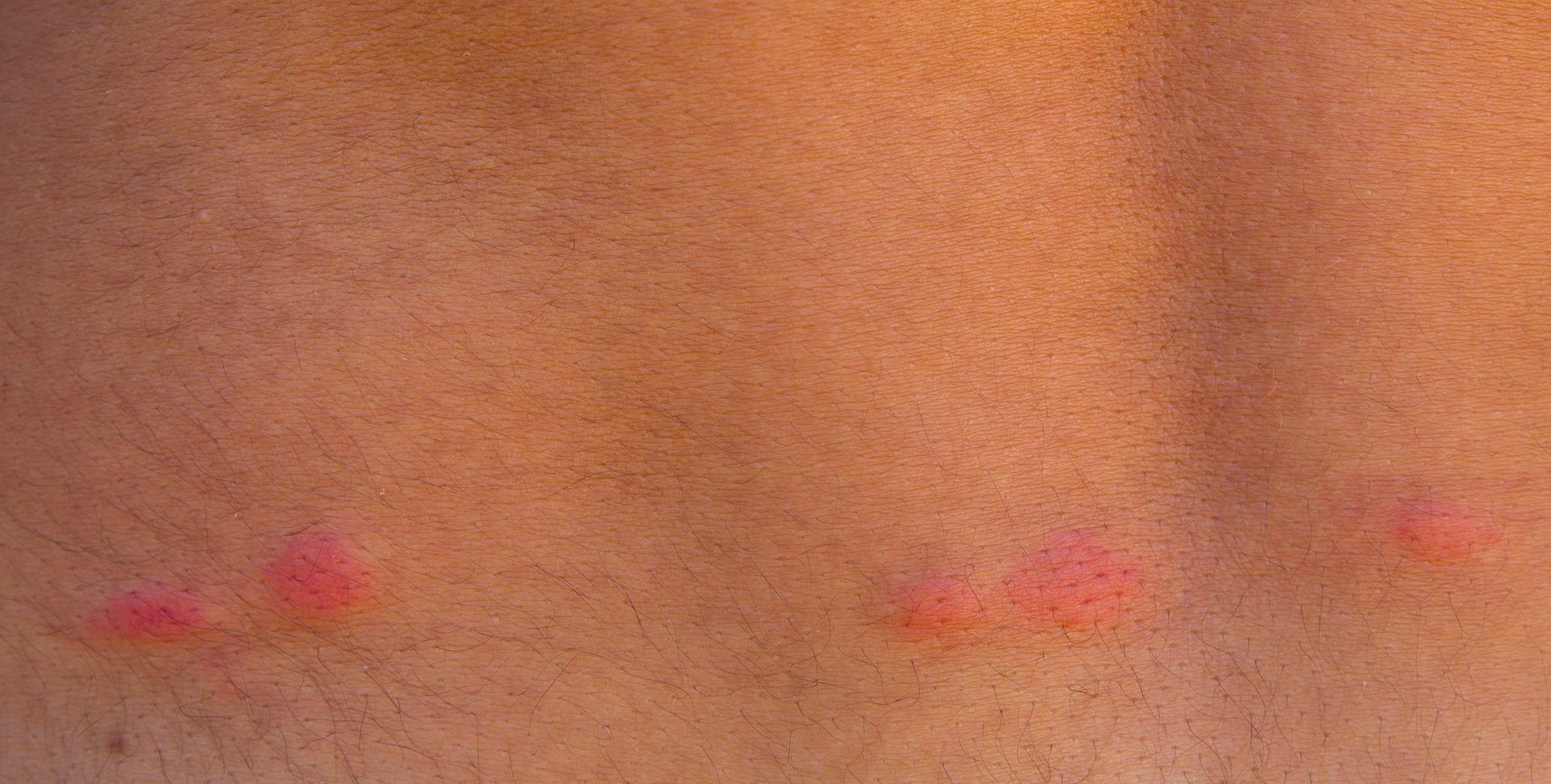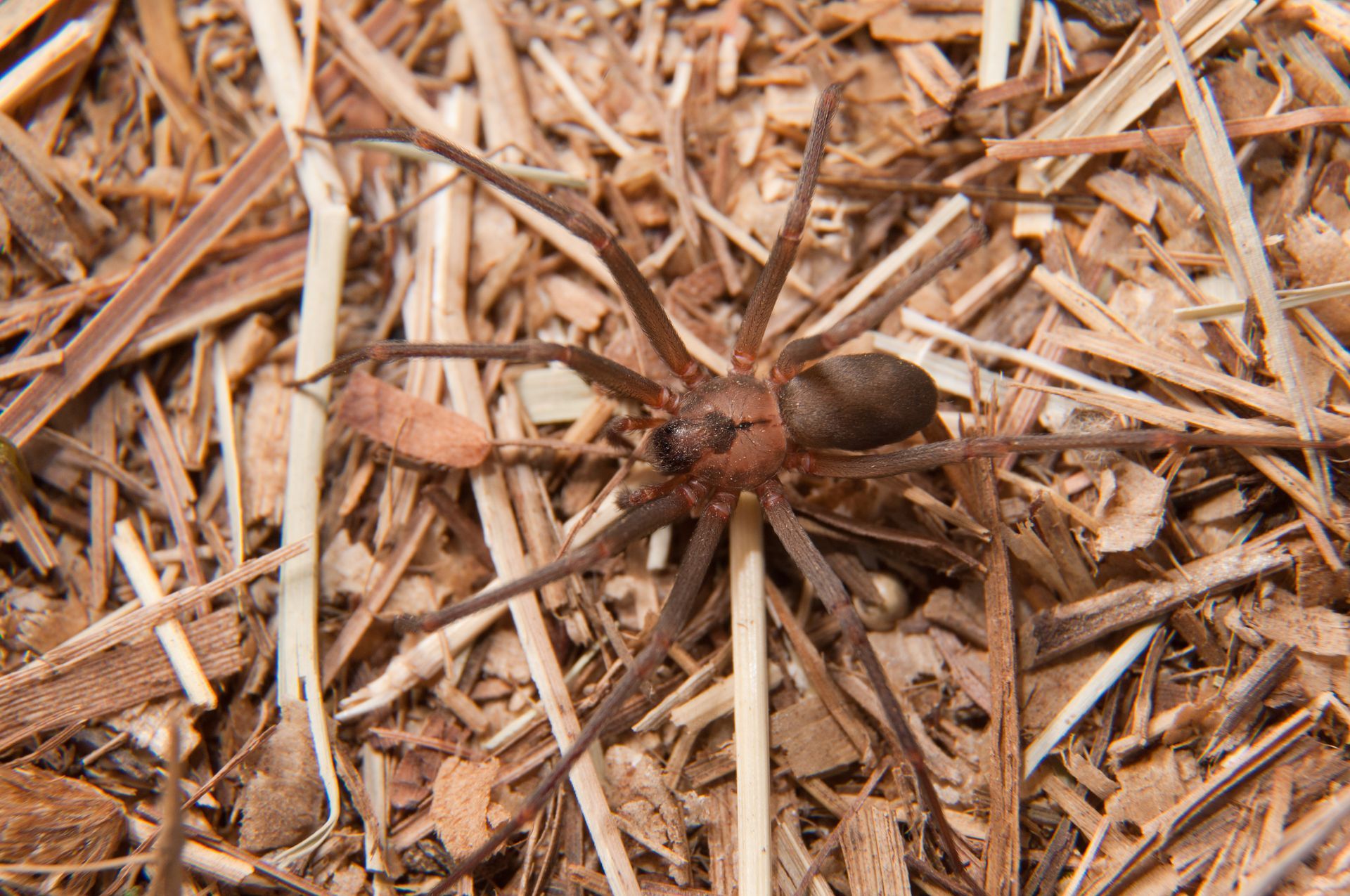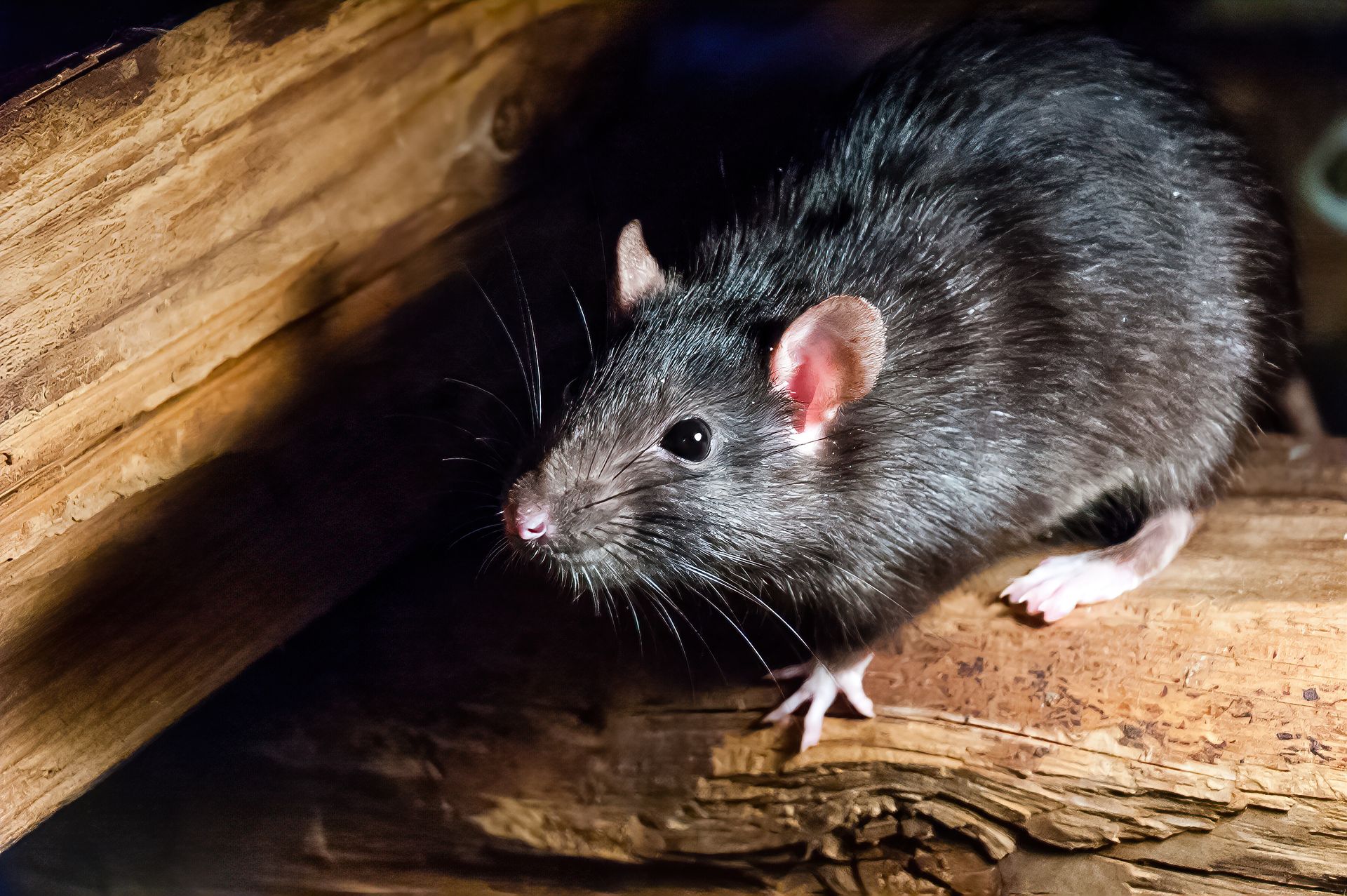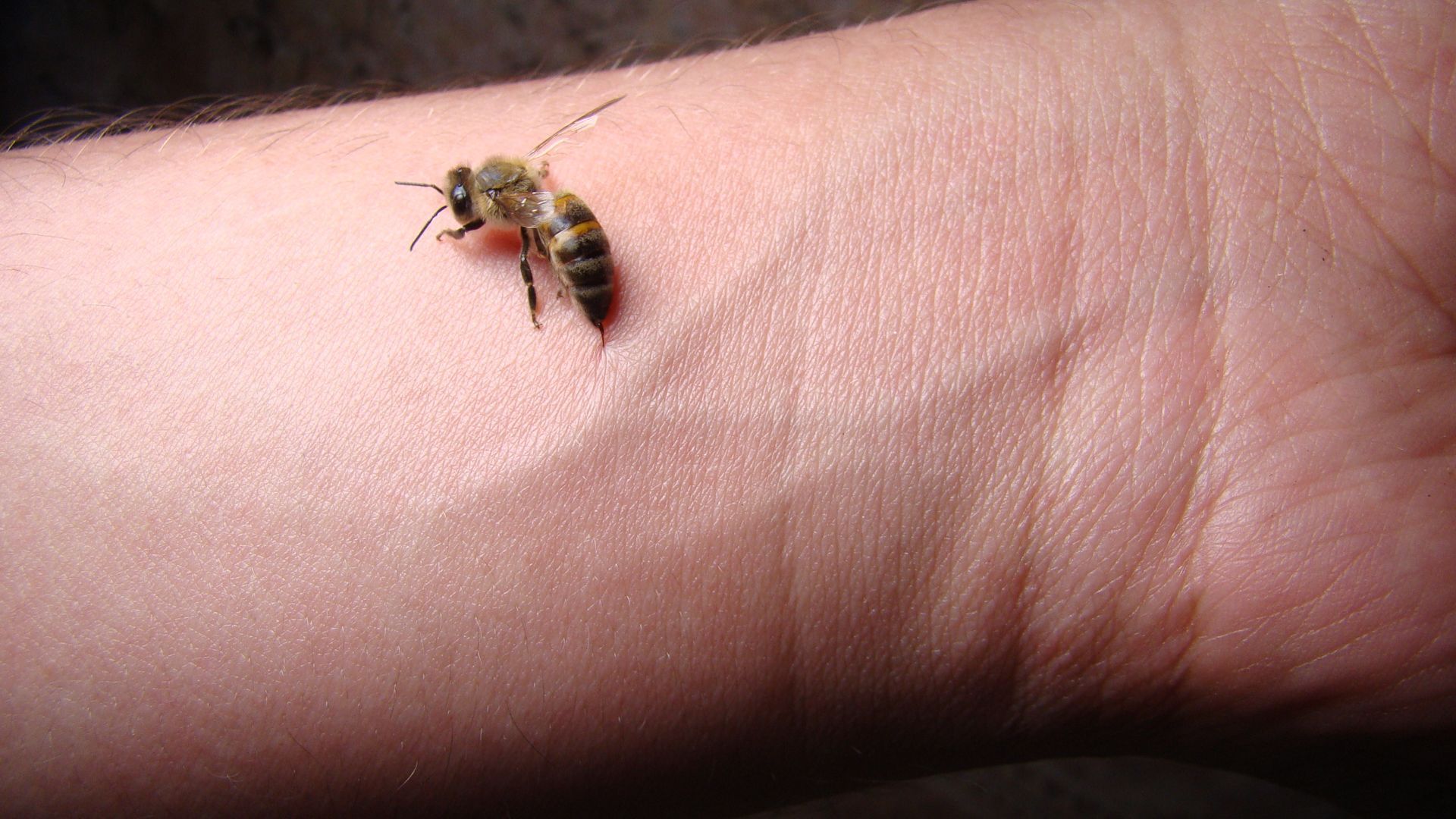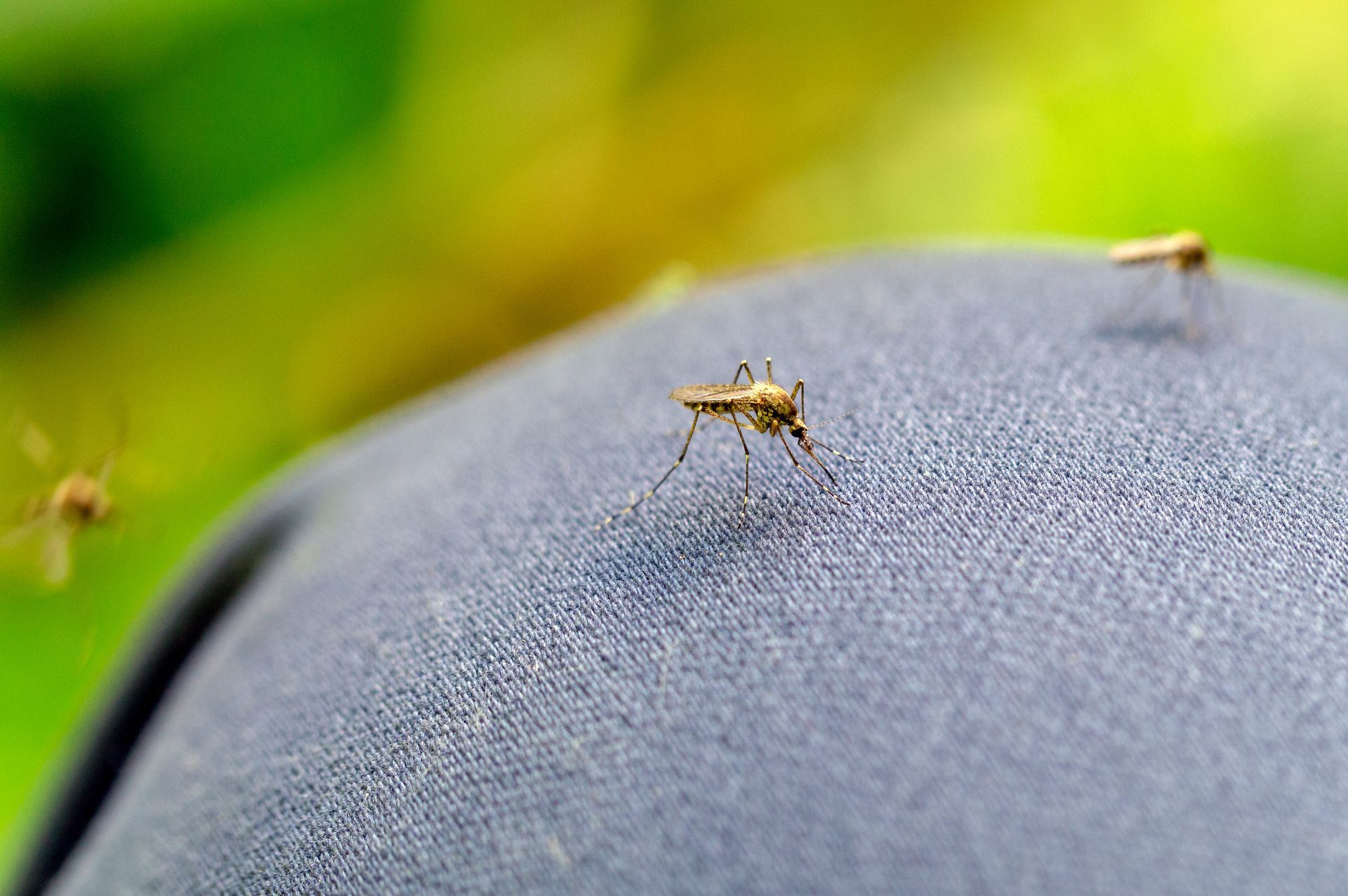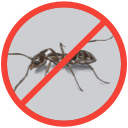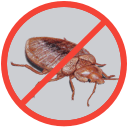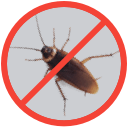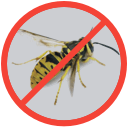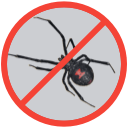How to Choose a Pest Control Company
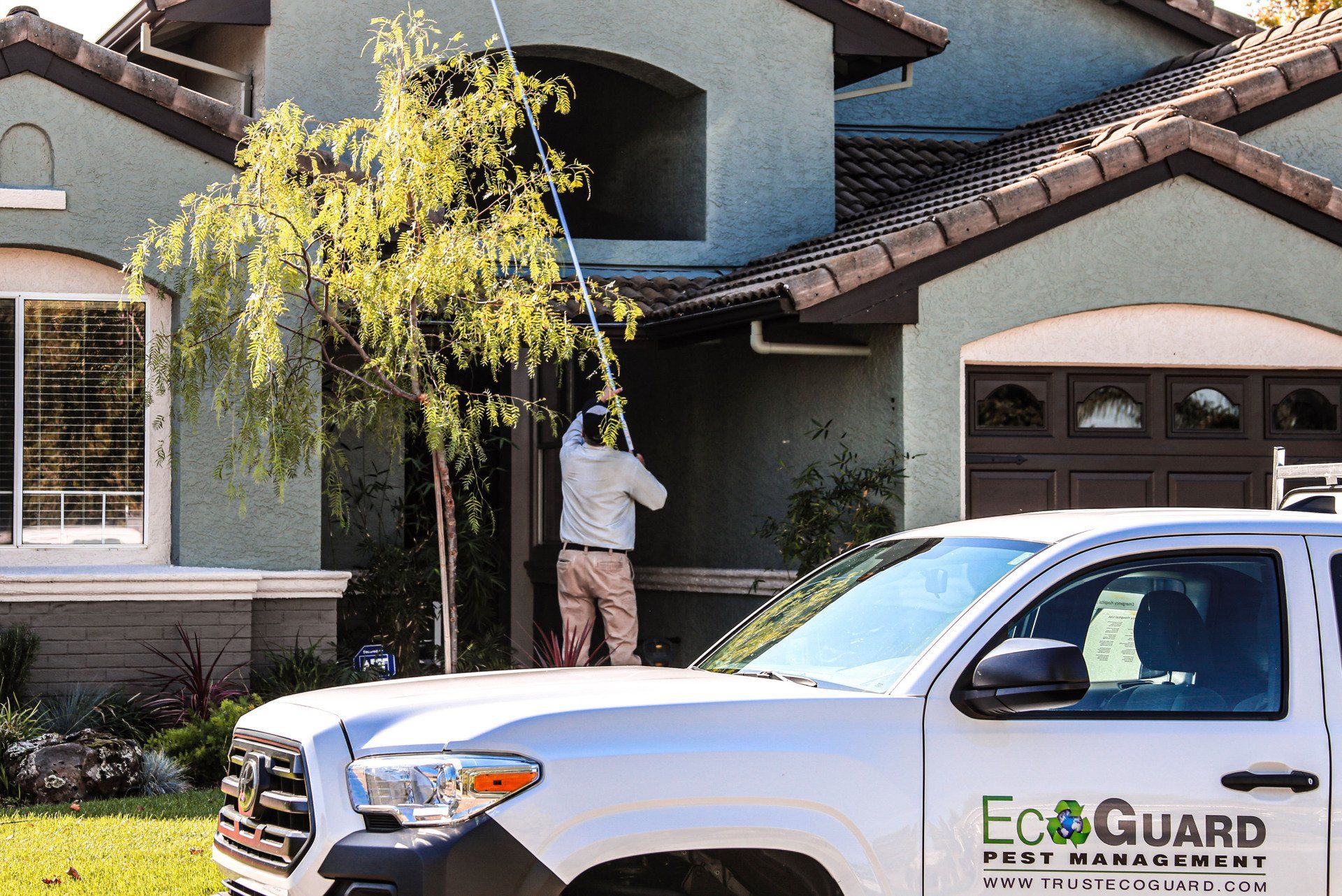
If you are dealing with a pest infestation, it is critical to enlist the help of professionals immediately. However, choosing a pest control company requires that you do your due diligence. Choosing the wrong pest control company may result in higher costs, greater health risks for you and your family, or even failure to eliminate the pest problem. Since dealing with pest infestations is time sensitive, the following information should help you find the best pest solution for you.
If your pest infestation is severe enough to require professional intervention, then finding the best company to tackle the problem is important.
Here’s what to look for in a pest control company:
- Qualifications
- Safety Methods
- Experience
- Reputation
- Value
- Customer Service
Compare multiple pest control companies in your area and see how they measure up to each other.
Before Hiring Pest Control Do Your Homework
Most people want a pest infestation dealt with immediately. However, you should avoid rushing to the first pest control company that you find. Low-quality pest companies may damage your home, use dangerous/unaccredited pesticides, or use inefficient methods that result in the pests returning soon after the treatment ends.
You might think you’re saving a few bucks by choosing the company with the lowest rates, but you’ll actually be losing money if they do a poor job and you have to pay for additional treatments. Furthermore, you can’t put a price on the safety of your family.
But how do you choose the right pest control company, anyway?
The most important thing you can do when choosing a pest control company is to do your homework.
Do the following research:
- Check Licenses and Permits
- Check Reviews
- Check Qualifications and Expertise
- Check Specialties
- Check Methods
- Check Guarantees
- Check Insurance
Check Licenses and Permits
Find a pest control company that’s legally registered in your state and has a current and valid license to operate.
Unlicensed pest control companies are more likely to use low-quality materials that won’t be effective in getting rid of pests. They might also use chemicals that are harmful to you and your family, your landscaping, your pets, or your home.
Every state has an agency that issues licenses to pest control professionals (and also logs complaints). You can check to see if you are dealing with a licensed pest control company by checking with your state agency (usually by visiting their website).
Check Reviews
Check the company’s reviews on and off the internet.
- Online Reviews: Check the company’s online reviews on Google, Yelp, and Angi. Look at ratings, reviews, and the number of ratings and reviews (a higher sample pool is usually more reliable). Reviews will give you insights into the experiences of other customers.
- Your Social Circle: Don’t forget to ask your friends and neighbors, as well. You’ll probably get more trustworthy opinions from people in your circle than strangers on the internet.
- References: You can also ask the pest control company for references from their previous clients. Reputable companies should be happy to provide these.
- Better Business Bureau: You can also ask the pest control company for references from their previous clients. Reputable companies should be happy to provide these.
Check Qualifications & Expertise
Pest control is a profession that requires specialized training, and technicians working at your home should have the proper certifications.
Make sure the companies you’re vetting hold memberships or have been granted certifications from professional associations. These organizations make sure that members meet certain standards in their practices. Certifications/memberships should be listed on the company’s website, but you can also ask company representatives.
Check Specialties
A “pest specialty” might be one of the most helpful things to look for in a pest control company.
The top companies can handle any pest problem, but some companies may specialize in getting rid of specific pests or using specific extermination/removal methods.
Some companies may focus on these niches to provide the best quality service possible. Other companies specialize in removing a specific pest because those pests are very common in the area in which they’re operating or are extremely difficult to get rid of like termites or bed bugs.
Consider hiring a company that specializes in getting rid of the pest you’re dealing with. Look at the company’s website and see if there are any pages that describe how the company deals with that type of pest. If you have a pest they deal with very frequently, they’ll probably be able to offer a more effective treatment plan.
Check Methods
Pest control companies should do an inspection of your property so they understand the scale and causes of the infestation, and so they can develop the most effective treatment plan. Some companies may insist on doing an inspection, and you should always ask for one.
A proper inspection requires the time and work of an experienced technician, so you should expect a reasonable fee for an accurate assessment. However, many companies offer free inspections which have become standard within the industry.
After the inspection, the pest control company will go over treatment options with you, including whether or not they’ll use pesticides. Some companies may offer non-pesticide treatment options.
The top pest control companies should also offer a post-treatment inspection to make sure the treatment was effective and the problem doesn’t happen again. Inquire about post-treatment inspections with each company you’re vetting.
Don’t forget to ask the company whether they use the Integrated Pest Management (IPM) approach. IPM plans are strategically designed to:
- Monitor your pest situation before and after treatment
- Develop a plan to guard your home from pests and prevent the problem from reoccurring
- Identify the pests
- Use the right treatment methods and pesticides to get rid of the pests
- Use natural solutions when possible
Check Guarantees
Pest control is often not a one-time problem. It might take continuous work to identify the root of the problem and stop the pest infestation from reoccurring.
Good pest control companies will offer a plan in which they’re responsible for providing additional treatments until the issue is finally resolved. You should opt for a company that offers this type of plan just in case your pest control issue takes more time to resolve.
Check Insurance
Make sure the pest control companies you’re vetting have both insurance and bonding.
Insurance protects the company in case their worker is hurt on the job. If the company doesn’t have insurance and is sued by one of its injured workers, it could impact the company’s ability to complete treatment or do additional treatments if they’re needed.
You should also make sure the company’s employees are bonded, which means the company will reimburse you if their workers cause any property damage.
Compare Against Competitors
Last but obviously not least, compare the prices and services offered by the companies you’re considering. Consider paying a little more for a treatment plan that’s better quality, but don’t pay significantly higher rates for services that are less comprehensive.
Do You Feel Comfortable with Their Customer Service?
Customer service is one of the most important things to look for in a pest control company.
A good pest control company should be extremely communicative about all aspects of the treatment process, including pricing, inspections, and treatment methods.
There’s a red flag when a company won’t give you clear answers about one of these aspects of their business.
Key Areas of Evaluation
If you’re still wondering how to choose a pest control company, make things simple for yourself by focusing on these key areas:
- Qualification: Make sure the pest control technicians have appropriate qualifications from a state agency. Learn whether they keep staff up-to-date on new regulations, practices, and safety measures. Check whether or not the company has a certified entomologist on staff and if they use Integrated Pest Management.
- Safety: Learn about the measures the company takes to protect you, your property, and its employees–especially regards to use of pesticides. Make sure the company uses proper protective equipment, has insurance and bonding, and has low-toxicity treatment options to protect your family and the environment.
- Experience: Find out how many years the company has been in business, and how much experience they have dealing with the pest you’re dealing with. Make sure that newly hired employees are able to train with more experienced technicians (you don’t want the team that’s treating your property to be composed of only beginning technicians).
- Reputation: Find out if other customers have had positive or negative experiences with the company you’re looking into. Look at online reviews, ask your friends, and neighbors, and check the company’s grade with the Better Business Bureau. Don’t forget to ask the company for references from previous clients.
- Value: Find out whether the company offers guarantees for their work and resolving your pest problem, and what the terms and prices are. You shouldn’t sign up for a long-term contract unless there’s guarantees and reasonable rates for subsequent treatments. You can also ask for estimates up front, and some companies may offer a free estimate.
- Customer Service: The company should be transparent about their prices and treatment methods and treat all of your concerns with care and respect. Employees should be able to explain to you which pests you’re dealing with and exactly how the pests are going to be dealt with. Don’t be afraid to ask questions!
Questions to Ask a Pest Control Company
Ask the following questions when you interview a pest control company:
- What pests are in my home? Are they common here? What stage of life are they?
- How long have they been in my home?
- How serious is the infestation?
- How long will it take to get rid of the pests?
- What do I need to do to prepare my home for treatment? Do we need to vacate the property? Do we need to move furniture? Do we need to turn off irrigation?
- How will scheduling work? How will technicians contact me to narrow the arrival window?
- Will pesticides be used? What are the health risks of each pesticide treatment?
- Will there need to be a cleanup of pesticide residue?
- How many treatments will it take to get rid of the pests?
- Is it likely the pests will come back?
- What’s the plan to prevent future infestations?
- Are there long-term contracts or guarantees?
- What will void the contract?
- How long are records kept? How can I access my records?
- Is the company licensed by the state? Does it hold membership in professional associations?
- Are technicians properly trained and up-to-date on best practices?
Do’s and Don'ts of Hiring Pest Control
Follow these best practices when choosing a pest control company.
Do’s:
- Do Read the Fine Print: Make sure your contract covers the type of service you’re looking for, and that you thoroughly understand every detail of the contract.
- Do Seek a Written Contract: Get everything in writing and don’t make verbal agreements.
- Do Record Information: Always record important information when you’re choosing a pest control company: contact information, names of technicians who will be doing the work, time and dates of inspections and treatments, names of pesticides (and their EPA registration numbers), preparations you’ll need to take before treatment, precautionary information and pesticide health risks, etc.)
Don'ts:
- Don’t Get Pressured: into joining a service provider without checking their reviews or customer feedback. This may be a signal that a company just wants to take your money without giving you the best-quality service possible.
- Don’t Just Get the Pests Removed: Don’t just have the pest control operator remove the pests from your home. The technicians should help you understand how the infestation started in the first place, and help you develop a plan to prevent it from happening again in the future.
Contact EcoGuard to Get Your Pest Control Started
Looking for a pest control company? Contact EcoGuard and learn about our pest control services for homes and businesses that are top rated in all of our localities. We offer inspections, treatment, and ongoing maintenance to prevent infestation from reoccurring. We can answer all of your questions and develop the most effective and least-invasive treatment plan to rid your home of an infestation.
Choosing Pest Control FAQs
-
What to look for when choosing a pest control company?
Understanding how to choose the right pest control company requires that you check licenses & permits, reviews, qualifications, expertise, specialties, methods, guarantees, insurance, and competitors. By getting a good understanding of these things, homeowners improve their chances of successfully eradicating their pest problem.
-
Which type of pest control is best?
The best type of pest control is the type that effectively solves your bug or rodent problem. To determine which company is best for your circumstances, you need to do your homework when selecting a pest control company.
-
What are the qualities of a good pest control service?
Good pest control companies often have good reviews that highlight the quality of their work and what you can expect from their services. This usually means that everything from their customer service to technicians operated as expected.
Request A Free Estimate
We will get back to you as soon as possible
Please try again later
Immediate Service Available
Services
Customer Care
Legal
Working hours
- Mon - Sun
- -
All Rights Reserved | EcoGuard Pest Management | All Phone Calls Recorded | By Using Website You Agree To Terms Of Use



